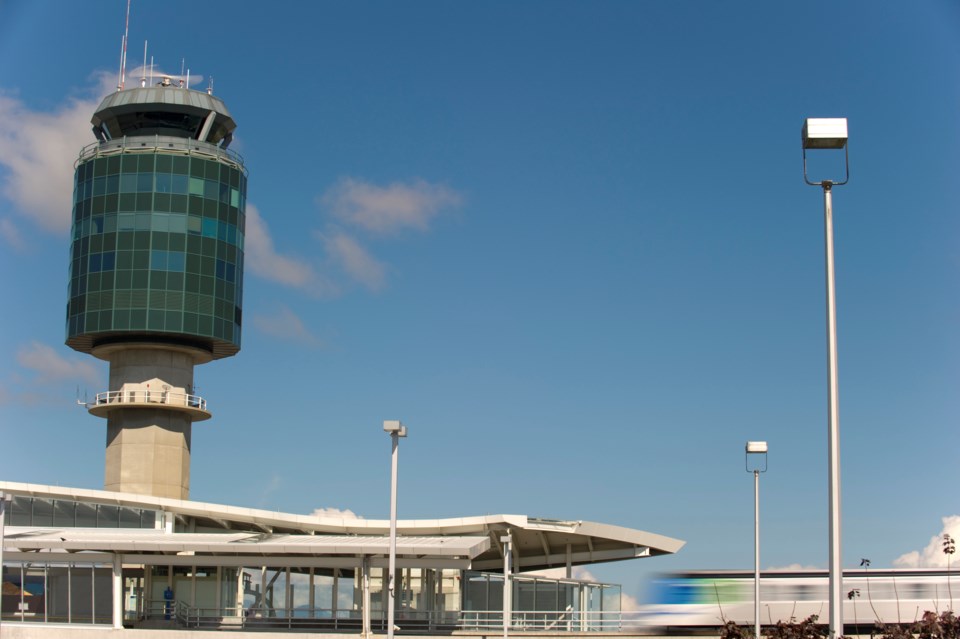At Air Canada’s request, Gate Gourmet was catering aircraft prior to arrival at YVR where employees were on strike.

B.C.’s Court of Appeal has upheld a B.C. Labour Relations Board order that a Swiss-based company providing airport catering could not have planes stocked outside B.C. while its Vancouver International Airport (YVR) employees were on strike.
“The company relies on a unionized British Columbia workforce to provide services to customers in British Columbia. It has availed itself of the British Columbia labour market and is obliged to comply with the ‘rules of the game’ in British Columbia,” Justice Paul Riley said in a July 14,unanimous three-judge appeal panel decision.
Gate Gourmet Canada Inc. had appealed a dismissal of its petition for judicial review of a B.C. Labour Relations Board order. That order required the company to cease and desist from using out-of-province replacement workers to do catering work ordinarily done by YVR striking employees.
Both the board and B.C. Supreme Court Justice Jan Brongers had found that Gate Gourmet’s actions contravened provincial labour legislation.
In its appeal, Gate Gourmet argued that the board and the judge misapplied the “real and substantial connection” test, resulting in an unconstitutional extraterritorial application of B.C.’s labour legislation to out-of-province activities and companies.
Gate Gourmet also argued that the judge wrongly found that the B.C. labour legislation had to apply to out-of-province workers to be “effective.”
Riley said Gate Gourmet provides catering services to airlines flying in and out of YVR and other Canadian airports including Calgary, Edmonton and Toronto.
Unite Here, Local 40 is the certified bargaining unit for Gate Gourmet’s YVR employees while other unions certified under Alberta and Ontario labour relations laws represent Gate Gourmet’s Calgary, Edmonton and Toronto employees.
Riley said Gate Gourmet provides customer airlines with the option of single-catered or double-catered service.
“Single-catering involves stocking an airplane with enough food and beverages for an outbound flight, while double-catering involves stocking for both an outbound and return flight,” Riley said.
He explained Gate Gourmet supplies catering services to multiple airlines. He said all but one of those customers handle their own order control functions.
“These customers determine whether to use single-catering or double-catering for particular flights, and then communicate their catering needs to Gate Gourmet,” he said.
The sole exception is Air Canada, which outsources its order control functions to Gate Gourmet.
“This means that Gate Gourmet, through its order control department in Toronto, is responsible for communicating Air Canada’s catering needs to Gate Gourmet employees at the various airports where it operates, including YVR,” Riley said.
The collective bargaining agreement between Gate Gourmet and the union expired on July 31, 2022. Having given required strike notice, the union began an overtime ban for the YVR employees on Aug. 1 2022.
The judge said that, when Air Canada learned of the YVR strike action, a representative contacted Gate Gourmet to request it assign its Calgary, Edmonton and Toronto employees to double-cater flights in and out of YVR.
“The account director ‘actioned’ the request, instructing the order control department to implement this out-of-province double-catering arrangement in response to the YVR strike action,” Riley said.
As a result, Gate Gourmet Calgary, Edmonton and Toronto employees provided double-catering service to many Air Canada flights into and out of YVR between Aug. 8 and Aug. 20, 2022.
“At the initial hearing before the board, it was admitted that the double-catering for a number of these flights occurred as a result of Gate Gourmet’s decision to ‘action’ Air Canada’s request,” Riley said.
So, on Aug. 16, 2022, the union filed an application with the board alleging that Gate Gourmet’s assignment of double-catering duties to out-of-province workers in response to the YVR strike action constituted an unfair labour practice.
On Oct. 12, 2022, the board vice-chair declared Gate Gourmet’s conduct in using Alberta and Ontario employees to double-cater Air Canada’s flights during the overtime ban amounted to an unfair labour practice and ordered the company to stop.
Gate Gourmet applied to the board for reconsideration of the decision but that was dismissed.
“In the review panel’s view, the original panel correctly concluded that the cease-and-desist order applied to Gate Gourmet, not its employees in Alberta and Ontario,” Riley said.
Still, Gate Gourmet applied to B.C. Supreme Court for a judicial review of the board decisions.
In his Aug. 22, 2024 decision, Brongers said Gate Gourmet had admitted the flights were double-catered and that Air Canada requested double-catering in response to the strike.
Brongers said it was open to the board to find that, but for the strike, the YVR bargaining unit members would have single-catered the flights.
“Such a finding is not clearly irrational and cannot be set aside on judicial review when the patent unreasonableness standard applies,” Brongers said.
Riley said both the board and Brongers reached the correct legal conclusion that the board did not exceed the scope of its jurisdiction when it ordered Gate Gourmet to stop using out-of-province workers to perform “struck work” in response to a strike action at YVR.
Riley said “there is a direct and compelling connection between B.C.’s labour legislation and Gate Gourmet, an employer of unionized B.C. workers working at a place of operations in B.C.”
He said that, “although the order applies to Gate Gourmet’s extra-provincial conduct in response to the strike, it does not result in any unfairness to Gate Gourmet, nor does it offend interprovincial (consideration) as the modern reality is that collective bargaining relationships based within one province sometimes involve conduct that is manifested in other jurisdictions.”